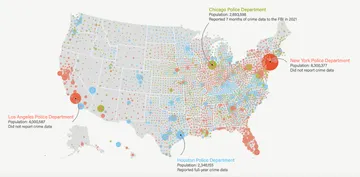Nearly six million Americans of voting age will be disenfranchised this election year because they’ve committed crimes. Some are still in prison1, but nearly four million others have served their sentences and are trying to re-enter society, most hoping to become engaged members of their communities. A few states make it relatively easy for ex-offenders to register and vote following their release and the completion of their probation and parole. A few other states make it impossible. (Here’s a helpful chart to help you track your own state’s rules.)
Between the extremes lies Alabama, a state with a long history of racially-motivated criminal justice laws and policies. Some ex-offenders—murderers and rapists, for example—are permanently precluded from voting unless they are pardoned. And some released inmates may eventually be permitted to cast a ballot. It depends on whether a local election registrar determines that their crimes constituted “moral turpitude” under the state’s constitution. That term is defined so loosely under state law that different bureaucrats in different counties have come to different conclusions about who gets to vote and who doesn’t.
State officials have been aware for many years that there is a problem with the vague definition of “moral turpitude.” In 2005, the state attorney general issued an opinion which did little to correct the ambiguity. A crime of “moral turpitude,” the state’s chief law enforcement official concluded, is “an act of baseness, vileness or depravity in the private and social duties which a man owes to his fellow men or to society in general.” The determination in any given case on whether to allow an ex-offender to register to vote, the attorney general wrote, rests with the “moral standards” of the decision maker—i.e. each county’s registrar.
What crimes the attorney did identify in 2005 as immoral, moreover, did not necessarily match up with the definitions of those crimes under Alabama’s statutes. For example, it is unclear whether crimes involving the possession of drugs constitute “moral turpitude.” In 2007, the state’s court administration office tried also to better define crimes of “moral turpitude” but ended with a list of 70 felonies that did not match the attorney general’s list issued two years earlier. The state legislature, meanwhile, has remained silent on the issue since then despite repeated calls for more clarity.
The standard is so chaotic that it was challenged last month in federal court in a voting rights case now pending in the Middle District of Alabama. The complaint—Thompson v. Alabama—seeks class action status for Alabama residents disenfranchised by the law, alleging that it is unconstitutional under what’s left of the Voting Rights Act. The plaintiffs want a ruling that enjoins Alabama officials from barring any ex-offenders from voting on the basis of their past felony convictions—or their inability to pay “any legal financial obligations” as a result of their incarceration. The complaint, in other words, seeks a repudiation of the state’s felony disenfranchisement law.
One of the plaintiffs is a black woman named Anna Reynolds, a 60-year-old citizen who was convicted in 1997 of a class C felony—theft in the second degree, a crime for which the maximum sentence is 10 years. She did not serve any prison time, however. In 2005, she was convicted of another class C felony—possession of a controlled substance. In 2008, having served her punishment for these crimes and believing that neither of her past convictions involved “moral turpitude,” she registered to vote in Houston County, in the southeastern corner of the state. She was successful and in 2008 and 2012 she voted without incident, the complaint alleges.
This year, however, she learned by checking her registration status that she had been removed from the list of eligible voters without any notice or opportunity to challenge the change in her voting status. When she contacted the local registrar she was told it was her 1997 conviction, the theft conviction, that had disqualified her. She will be unable to vote in this presidential election for the first time in three election cycles, all for a crime for which she received no prison time.
The lead plaintiff in the complaint is Treva Thompson, who was registered to vote in Madison County before she was convicted in 2005 of a class B felony, another property theft crime that carries a 20-year maximum sentence. Thompson never served any time in prison, but she was immediately removed from the list of eligible voters. In 2015, she asked to be reinstated on the voter rolls but was denied. The crime of theft, her local registrar concluded, was one of “moral turpitude.” Moreover, Thompson’s journey through the state’s justice system has left her saddled with $40,000 in legal debt she cannot pay, another disqualifying factor.
One Alabama resident who is not a plaintiff also has a story to share about the arbitrary nature of the “moral turpitude” clause. Perrion Roberts, a registered voter in Madison County, was charged with drug trafficking but pleaded guilty to drug possession and spent two years in prison before being paroled in 2006 to a halfway house in Jefferson County. There she registered and was able to vote. Then she moved back to Madison County, shortly before the 2008 election, and sought to transfer her voter registration there. She was told in a letter, however, that her voting rights had been denied because of her past conviction. “They wouldn’t let me vote,” she told me over the phone last week.
Roberts tried but failed to get her voting rights restored in Madison County but her story has a happier ending. She received a pardon in 2014 and won back her right to vote in time for this year’s election. The plaintiffs in Thompson v. Alabama, though, will sit this one out. State officials have until November 16 to respond to the complaint. They declined to comment on the lawsuit or the “moral turpitude” standard.

